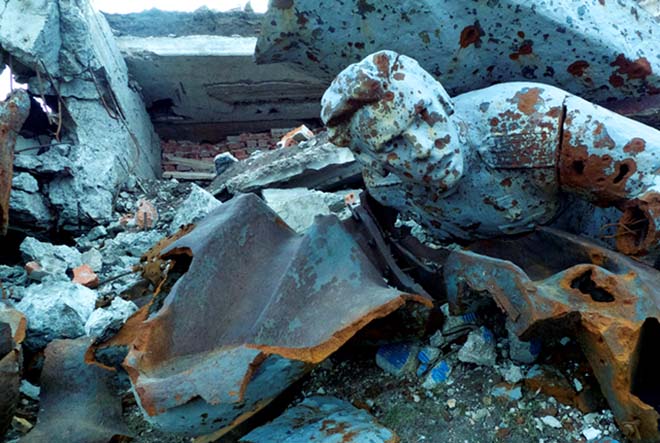A fascinating theory is spreading among Russia-Ukraine watchers. With the loss of the Crimea and the Donbass, Ukraine could find the right size of a European state oriented to the West and Nato.
Resizing the territory of a State, ceding territories with a strategic borders redesign, it is not necessarily a bad idea. Ian Lustick, professor of comparative international relations at the University of Pennsylvania, is one of the proponents of the “Right-sizing” theory. “Although it is dangerous and usually wrong to change a country’s borders when those borders have been settled and have taken on a sense of stability and naturalness,” says Lustick in an interview with the World Affairs Journal, “there are circumstances when it can be entirely appropriate to alter the size and shape of a State for the State’s own good and for the welfare of the nation, people, or population that identifies with it”.
This is the case of Ukraine? “key factors are the distributions of power and sentiment inside Russia, Ukraine, Crimea, and the Donbas, along with relevant international distributions of power and sentiment“, Lustick says. “In light of those factors, we must then ask which territorial dispositions have the best chance, or even a reasonable chance, of eventually becoming accepted as “natural” and therefore stable, and not a subject for armed conflict, in the future”.
A disengagement from Donbass
Alexander J. Motyl, professor of political science at Rutgers University, has long been a proponent of this theory. Ukraine would better let Donbass and Crimea go, forever.
“Ukrainians need to stop thinking of the occupied territories as ‘theirs’.They need to stop viewing them as vital to Ukraine’s nation- and state-building efforts”, Motyl writes on his blog. He is convinced that only by stopping devoting so much of their politics to finding solutions to the war, Ukraine will be able to focus on more important things to do at home, such as the reforming the economy. “Transforming Ukraine into a powerful state is the sine qua non of its ability to withstand Putin’s current or future aggressions“.
In this view, disengagingfrom Donbass and abandoning any ideaof taking Crimea back, would result in a right-sizing of the Ukrainian territory, in the sense of Lustick. Ukraine could eventually transform from a country with two souls, that suffers from a geopolitical strabismus that lasted the two decades of the post-Soviet independence, into an more compactentity, which recognizes in a common identity and occupies a definite place in the map of the continent. “The longer the war lasts, the longer the Donbas enclave known as the DNR-LNR continues to exist, the more likely will Ukraine become divided, willy-nilly, into two distinct and separate entities”.
The Minsk agreements
In this light, the Minsk peace agreements are a double edged sword. If itcommits Kiev to provide Dnr and Lnr an autonomous status within the State, on the hand side it cannot force Putin to surrender control of the Russo-Ukrainian border. “A programmed failure of elections in Donbass as a viable peace-making process is in Ukraine’s best interests”, writes Motyl.
Putin’s goal is the destruction of the Ukrainian state. And Russia has all the economic and military potential to do so, but according to George Woloshyn, an analyst at the White House, the situationis so far not entirely negative: “The Kremlin, having greatly underestimated Ukrainian resistance to Novoroissiya, is likely to very cautiously evaluate the risks. Ukraine has withstood his assault; vastly reduced its dependence on Russia; and Kyiv is determined more than ever to join the West”.
According to Motyl, ultimately, forcing Russia to bear all the costs of the occupation is Ukraine’s single most effective weapon in the war with Putin. “Acomplete disengagement would only raise the costs to Russia”.
@daniloeliatweet
A fascinating theory is spreading among Russia-Ukraine watchers. With the loss of the Crimea and the Donbass, Ukraine could find the right size of a European state oriented to the West and Nato.




